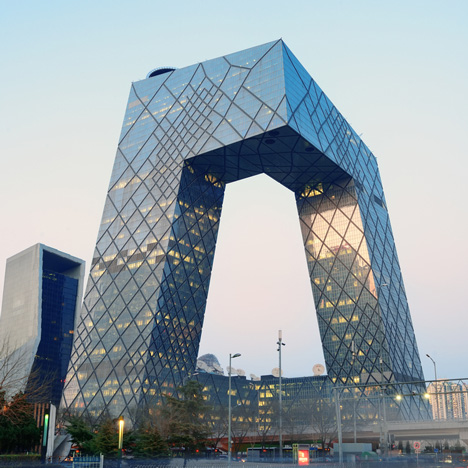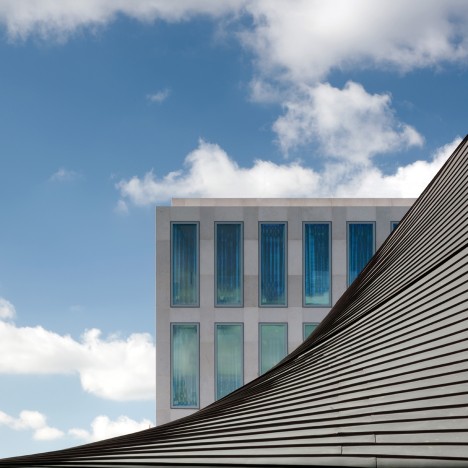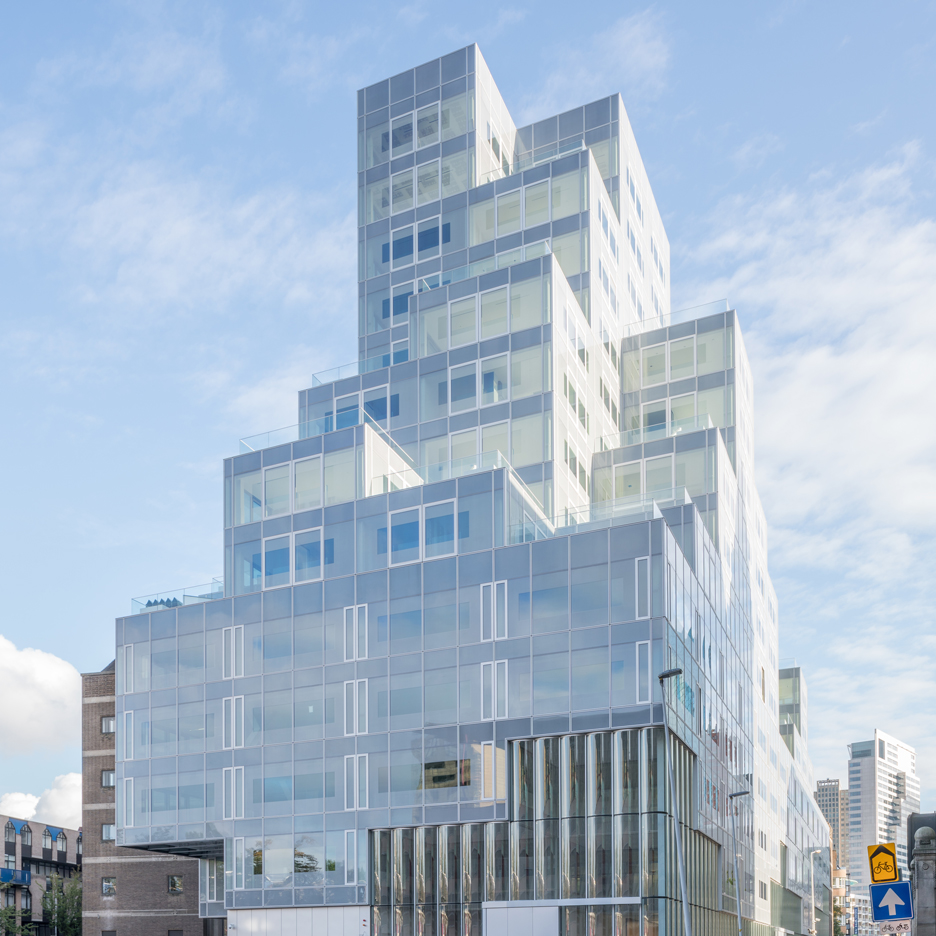Architecture has a serious problem with communication says Rem Koolhaas
Too many architects only talk to other architects that share the same views, and are becoming increasingly irrelevant as a result, according to OMA founder Rem Koolhaas.
In his keynote speech at the American Institute of Architects' annual convention last week, Koolhaas said that architects were too self-referential and that architecture as an industry was too slow to keep up with the "revolutions" that are shaping the modern world.
"Architecture has a serious problem today in that people who are not alike don't communicate," said Koolhaas, according to a transcript of the talk published on the website of US magazine Fast Company.
"I'm actually more interested in communicating with people I disagree with than people I agree with."
"We're working in a world where so many different cultures are operating at the same time, each with their own value system," the Dutch architect added. "If you want to be relevant, you need to be open to an enormous multiplicity of values, interpretations, and readings."

Koolhaas said that the amount of time spent realising "the least architectural effort" was five or six years, which was "really too slow for the revolutions that are taking place".
But he said that the adoption of architectural terminology and thinking by Silicon Valley companies could suggest a new usefulness for architects – not as designers of buildings but as organisers of knowledge and social innovators.
"Architecture stands with one leg in a world that's 3,000 years old and another leg in the 21st century," he said. "This almost ballet-like stretch makes our profession surprisingly deep."
"Initially, I thought we were actually misplaced to deal with the present, but what we offer the present is memory."
Koolhaas said that architecture has a social responsibility, and that architects needed to find a way back to the "good intentions" promoted by the pre-Thatcher and Reagan ideas of the Welfare State.

He said architects could use the current refugee crisis as an opportunity to find new ways to reinvigorate abandoned sections of cities in areas like eastern Germany, encouraging highly-educated refugees to move in and transform them.
"With the market economy, we've slowly found ourselves supporting, at best, individual ambitions and, at worst, pure profit motives," he said. "In that sense, every crisis perhaps presents an opportunity."
"Refugees could reenergise sections of the cities. They offer to architecture an interesting provocation or invitation to do good work and collaborate in interesting ways."
He is the latest architect to speak out about the refugee crisis, following 2016 Venice Architecture Biennale curator Alejandro Aravena's call for "professional quality, not professional charity" to deal with the world's issues, and Jeannie S Lee's plea for a solution to sprawling temporary camps.

Koolhaas founded his Rotterdam-based studio OMA in 1975. Some of the firm's most important projects include the Kunsthal gallery in Rotterdam, the Seattle Central Library and the CCTV tower in Beijing. Its recently completed buildings include the redevelopment of the former Commonwealth Institute in London and the pixellated Timmerhuis complex in its home city.
Earlier in May 2016, Koolhaas said that Zaha Hadid Architects can continue to grow after the death of its founder if it follows the model used by leading fashion houses. Last month, he commented that Bjarke Ingels embodies a "fully fledged new typology" in architecture.
This year's AIA Convention took place in Philadelphia from 19 to 21 May 2016.